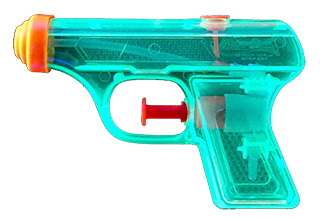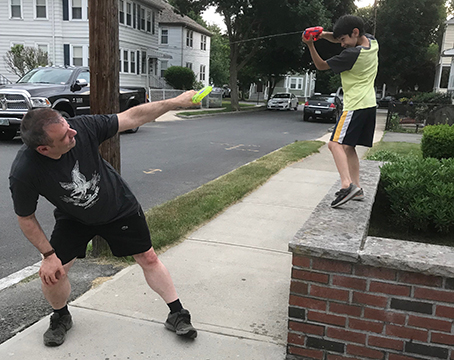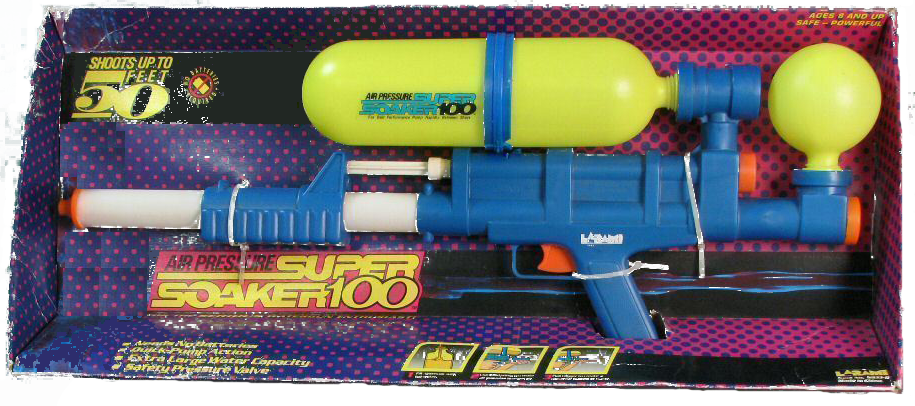
BH: I think 5.5 is the best lab in the whole curriculum!
MF: I still have concerns about the only thing a POC invented in this course being a children's toy (that POC children are killed for playing with)
In this lab, you will consider the implications of technology on warfare.
On this page, you will consider the importance of pre-computer technologies in warfare.
Brian, what is this "Explain" text? Are we planning to do something with it? --MF, 9/6/18
Please do not use tables for anything other than tabular data. --MF 12/15/16
| Water guns used to look like this: |

|
| Flickr: Dean Hochman, CC-BY-2.0 |

|
Because all the water pressure came directly from your trigger finger, you had to be practically on top of the other person. |
| S.Tezel, CC-BY-NC-ND-4.0 |
| But in 1982 the Super Soaker was invented. It has a pump that you operate with repeated back-and-forth motions, accumulating a much greater water pressure. |

|
| The Strong, CC-BY-NC-ND-4.0 |

|
This invention totally changed the character of water fights. Now you can hide behind things across the yard from your target, and everyone ends up utterly drenched. |
| Flickr: John Shedrick, CC-BY-2.0 |

Lonnie Johnson (born 1949) is an engineer working on energy production, especially solid-state batteries and solar panels, and he is the inventor of the Super Soaker. His earliest professional work was in the U.S. Air Force, and he later worked at NASA’s Jet Propulsion Laboratory on the Galileo mission to Jupiter. Johnson attended Williamson High School, an all-black school in Mobile, Alabama. In 1968, he won the first-place prize at the state science fair for his compressed air powered robot. Before working for the U.S. Air Force, Johnson obtained a B.S. in mechanical engineering and a master's degree in nuclear engineering from Tuskegee University.
Technology affects real wars, too. The outcome of individual battles may be decided by numbers of soldiers, the strategies of generals, and other human factors. But, with rare exceptions, if one side has better technology, they win in the long run. For example, in the Seventh Century, the Eastern Roman (Byzantine) Empire was militarily weak until its invention of "Greek fire," a flammable chemical that was fired through hoses or in projectiles, with the special property that it would keep burning in water, so it was valuable in naval battles. This weapon was very important to the survival of the empire, which lasted until the 15th Century.